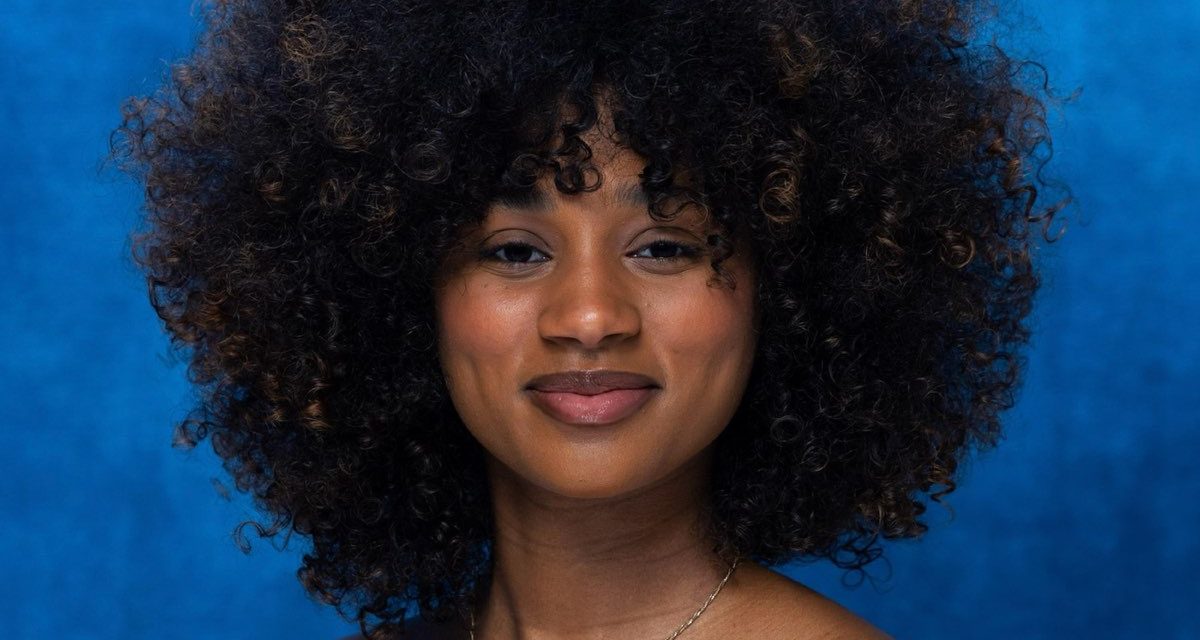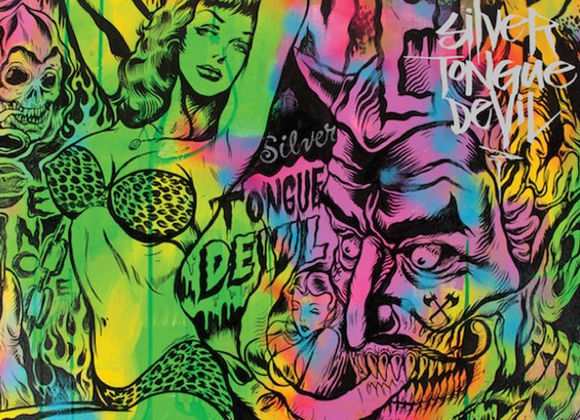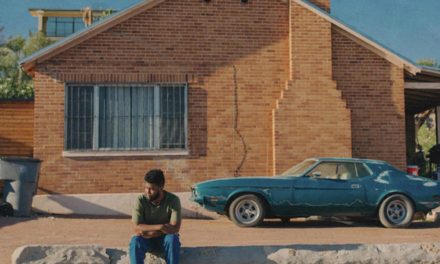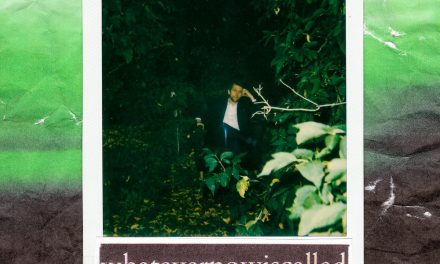After crashing into the mainstream with “Not my Problem” earlier this summer, this freshman’s freshman album is solidifying her spot on the R&B charts. Laila!’s new album, Gap Year!, takes a lot of inspiration from lo-fi study beats, 2000s pop, and the current giants of the R&B genre. Utilizing rising synths, resonant basslines, and bright vocals, Laila’s sound is more focused on building a relaxing and fun environment than anything else. With fast tracked hits like ‘Not Like Us’ and ‘Million Dollar Baby’ dominating the hip-hop/rap charts over the summer, it’s nice to take a second to slow down and smell the roses, and Gap Year! is perfect for taking it easy. Laila has also taken the time to make sure her work pays homage to its inspirations, with production that takes us back to the 90s and 00s mixtape soundscape, and vocals rich with the sound and style of a jazz bar. Fans of Tyler, SZA, and H.E.R. will enjoy the soft, atmospheric nature of the album, and the emphasis it places on emotional storytelling.
Narratively, the album focuses on the questions echoing through Laila’s mind as she enters a new part of her life. In her description online, Laila describes the album as a collection of songs written while she was ‘in the real world’ during her gap year before college. Fittingly, the album reflects the exciting, but messy combination of naivety, confidence, heartbreak, and love she experienced during her first year of adulthood. While the highs and lows of youth isn’t a groundbreaking theme, Laila looks at her past, as well as the options ahead of her, through a uniquely romantic lens, celebrating innocence and authenticity as a necessary part of growth.
She makes this celebration of reality clear in her very first track, “Talent Show”, which takes place in a simulated school auditorium, a symbolic representation of her last moments in school before crossing the threshold. While the acoustics of the stage may not benefit Laila’s vocals, they perfectly match the bluntness of her lyrics as she starts to work through the problems of her last relationship, expressing how she had “nothing to say” that could get her out of a cycle of fights. As she grapples with emotions, she concludes the song with “It’s never really worth it, the pain” before repeating her sentiment of ‘nothing to say’ in a more general sense as the audience applauds. The introduction isn’t quite over yet, as Laila overlays a voicemail from her mother emphasizing that Laila “better be [her] way to school”. Now, the scene is set and Laila dives headfirst into the album on her next track.
“SINK 2 RISE” is a low, soulful song about accepting your lows to find your highs. With a simple beat consisting of just an electric piano, snare, and bass drum, it highlights Laila’s vocal prowess. It’s a short song, with just two verses and a bridge before its outro, but it still has time to present the dichotomy in Laila’s perspective; her fear of failure: “Look me in my brown eyes, tell me lies, oh how do you know things will change?” and her need for forward motion: “First I’ve gotta float to fly, live to die”. The track ends with an overlapping chorus of “Sink, to rise” before transitioning to the upbeat track “R U Down?”, Laila’s first love song of the album, and arguably her strongest. It starts Laila’s narrative journey with a new love interest, focusing on the feeling of unrequited love when talking to someone who won’t express themself. Her lyrics contrast the doubts she has on her lover’s feelings, “What are you thinkin’ of?” against the confidence of her own “Wrote you ‘bout a thousand letters” against a traditional hip-hop track for most of the song, before Laila ends the song with a pleading chorus of “Are you down? Let me know”. I like to view this song as the first of a triptych of tracks, with the subsequent songs completing the journey Laila starts.
In “If U Don’t Know By Now” Laila stops questioning and goes after her love from the past track. The sound doesn’t deviate much from the previous tracks, once again using a low, simple beat to underscore her soprano vocals. What stands out to me about this track is its story and tone, as Laila romanticizes the ways you show affection in high school – “Send a little letter to your house, ask your mama if you home”, “Heard you throwin’ pebbles at my window’ – when you aren’t afraid to express yourself. It’s an undeniably cute sentiment, reminding me of the classic boombox scene from the film Say Anything. In the finishing track “Want 2”, Laila uses her artistry as an expression of devotion as she sings “I made this beat for you” and implores her partner to “chill” with her. I consider this message of relaxation the happy ending to the trilogy, as Laila conquers her initial questions and settles into the relationship freely. The track starts a new arc with an amateur freestyle that goes straight into “Sani (Homework Freestyle)”, a short, fun interlude that continues Laila’s theme of authenticity.
The rest of the album continues to explore the themes of confidence, fear for the future, and love, as Laila questions the path she’s taking in her love life and the treatment she is willing to accept. Sonically, they keep the same calm, soul sound of the earlier tracks, with a slightly more electric and digital tone present, especially in “Grand Opening” and “Blackberry”. These songs are two of my favorites, utilizing much sharper guitar and piano instrumentals alongside more heavily autotuned vocals to emphasize Laila’s conviction in her feelings of mistreatment. While Laila’s production can definitely approach repetition, I found the cohesiveness of the album made it one of my favorites to put on in the background, with just enough density to enjoy without getting distracted.
Eventually, after deciding to leave her partner behind in “We’re So Over”, Laila presents another triptych of songs focused on her rising confidence and maturity, set to a more modern hip-hip/rap soundtrack than the past tracks. While “IDONTNEEDUANYMORE” might sound like a revenge track title, the song itself describes Laila’s feelings on moving on, and looking forward to personal growth instead of holding on to jealousy. “Not My Problem” isn’t exactly lyrically dense, but one of its few unique lines “Lookin’ within, found sanctuary in my solitude” lays out the theme pretty bare, as Laila uses her energy to dismiss negative energy and follow her own mind. This conclusion leads to one of Laila’s most sympathetic songs, “Flyer Than U”, as she sings about the pain of letting someone hurt you under the guise of immaturity, and once again returns to a more electric mix to represent determination. It’s a healing trio of songs, and they give a nice feeling of catharsis before Laila fades the album out with the lo-fi sounding “Coupè DeVille”, another sincere track that sees Laila expounding on the love she held for her partner, once again asking them to show her their best self so they can be together.If you couldn’t tell by the insane word count of this article, I was a big fan of this album. It’s an insanely impressive album for 18-year-old singer, producer, and songwriter Laila Smith, and I can’t wait to see what she makes next (hopefully, a tour list that features Alabama). I’d give the album a solid 8/10, with at least half of the tracks going on heavy rotation in my daily queue.
Photo credits from IIIXL Studios
Hi! My name is Jake Bennett, I'm a film and computer science student at UA. I'm also a member of WVUA's speciality show Loser Radio, an avid fan of indie rock, and a social media manager for artists!








